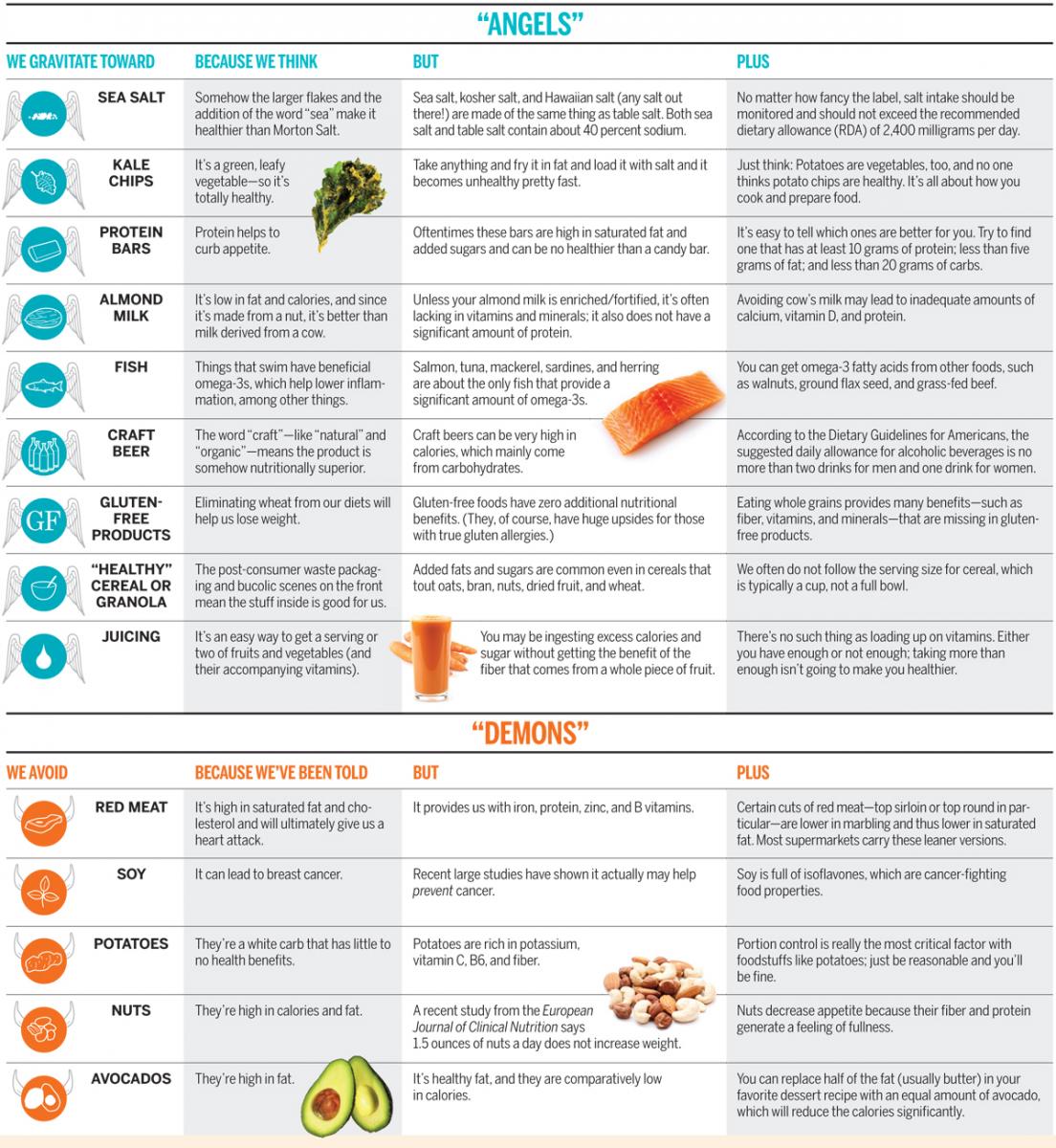The Local newsletter is your free, daily guide to life in Colorado. For locals, by locals.
Colorado has a reputation for lean residents who eat with health in mind. With the lowest percentage of adults experiencing obesity in the nation, the Centennial State has certainly earned that reputation. But according to Jessica Crandall, Colorado’s spokesperson for the Academy of Nutrition and Dietetics, our penchant for healthy foods could put us at risk of falling into the “halo food” trap. Clever marketing campaigns and nutrition buzzwords can sucker consumers into thinking that something that’s not healthy actually is. “There have been studies that have shown nearly 50 percent of Americans think ‘organic’ means healthy,” Crandall says. “That’s just not true.” With Crandall’s help, we break down a variety of halo foods with an angelic glow you should be wary of and five devilish ones that aren’t as evil as you might think.









